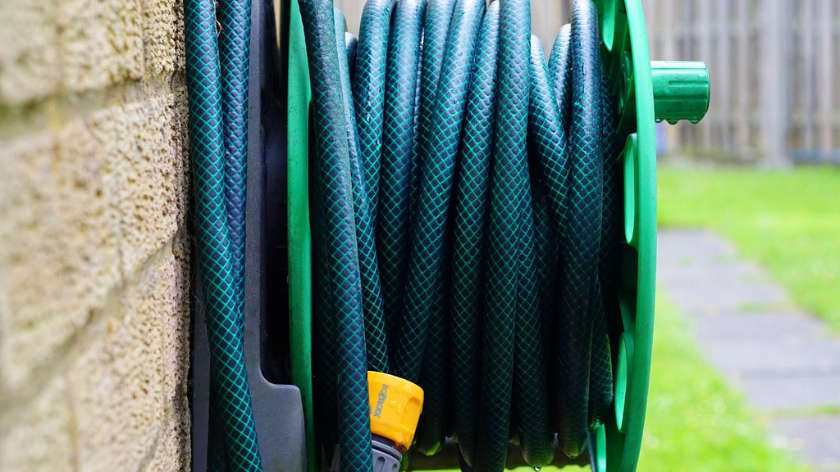
Yorkshire Water has announced a temporary hosepipe ban will come into effect this week ahead of another hot and dry spell.
The sustained hot weather in recent weeks has driven higher demand for water across the region, with Yorkshire Water supplying an additional 4.3 billion litres of water between April and June compared with a typical year.
As a result, Yorkshire’s reservoirs are currently at 55.8%, which is 26.1% lower than they would normally be at this time of year.
Yorkshire Water said it has been “carefully managing water resources” in the region for several months, moving water via a regionwide grid system to balance stocks.
However, the company said it is necessary to move into the next stage of its drought plan - which means introducing temporary restrictions on the use of hosepipes from Friday (11th July).
Yorkshire Water’s director of water, Dave Kaye, said:
“We need to take action now to help conserve water and protect Yorkshire's environment.
“That means from Friday this week, people across Yorkshire will need to stop using their hosepipes to water their gardens, wash their cars or for any other activities.
“Introducing these restrictions is not a decision we have taken lightly, and we’ve been doing everything we can to avoid having to put them in place.
“Our region experienced an extremely dry spring, which resulted in the region entering drought status in June.
"Usually, spring is a time when our groundwater sources and reservoirs continue to be topped-up by changeable weather, but this has not been the case in 2025, with our reservoir stocks falling since the last week of January.
“Of course, we have seen a few periods of changeable weather more recently, which helped slightly with the water resources picture. But these have been followed by constant high temperatures and more dry weather, which causes increased water usage.
“We’re grateful to our customers, who have been saving water where they can this year already. It is really important that we all continue to do so.”
Activities that are not permitted while the temporary restrictions are in place include:
- Using a hosepipe to water a garden
- Using a hosepipe to clean private vehicles or boats
- Watering plants with a hosepipe on a domestic or other non-commercial premises
- Filling or maintaining a domestic swimming, paddling pool, hot tub or cold-water plunge pool with a hosepipe
- Using a hosepipe for domestic recreational use
- Filling or maintaining a domestic pond or ornamental fountain using a hosepipe
- Cleaning walls or windows of domestic premises using a hosepipe
- Cleaning paths or patios using a hosepipe
- Cleaning other artificial outdoor surfaces using a hosepipe
People can still wash their car and water their gardens without using a hosepipe if they use tap water from a bucket or watering can; or use water that is not sourced from taps such as grey water, rainwater from a water butt, or a private borehole.
Businesses will be allowed to use a hosepipe if it is directly related to a commercial purpose.
There are restrictions on using a hosepipe if not for those essential commercial needs – so using a hosepipe to clean a path outside a business property, for example, would not be allowed.
Blue badge holders, those on Yorkshire Water’s Priority Services Register or WaterSure tariff for medical reasons, are also excluded from the restrictions.
Dave added:
“These restrictions are intended to make sure that we have enough supply for the essential needs of people across the region this year and next, as well as making sure we’re able to protect our local environment.
“With more dry weather forecast in the coming weeks, it is likely our stocks will continue to fall so we need to act now to maintain clean water supplies and long-term river health.
“Having restrictions in place also allows us to apply for drought permits from the Environment Agency, which means we can abstract more water from our rivers and reduce compensation flows out of our reservoirs so that we can continue to provide the water our customers rely on us for.
“The restrictions will come into effect on 11 July and will be in place until the region has seen significant rainfall to bring reservoirs and groundwater stocks back to where they need to be.
“This may last into the winter months, but we will lift the usage restrictions as soon as we are able.”
In the short-term, leakage has been a key focus, with 100 people added to the leakage team in 2025 to find and fix leaks and burst water mains quicker.
In the longer-term, Yorkshire Water is investing £406m to replace more than 1,000km of water mains around the region to reduce leaks and bursts, as well as exchanging 1.3 million smart meters to help detect leaks.
The utility is also investing in improvements to water treatment works in the region and investigating new water sources for the future, with borehole projects underway in Brayton and East Ness to bring new sources of raw water into supply.



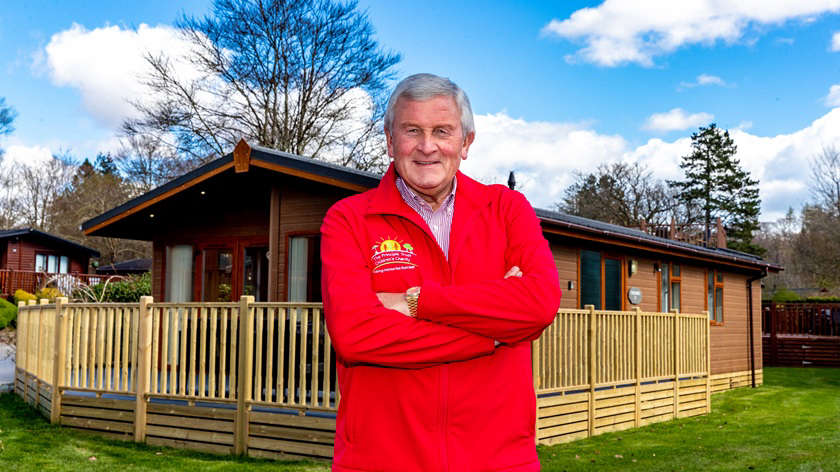 Skipton charity refocuses its mission as demand for children’s mental health support surges
Skipton charity refocuses its mission as demand for children’s mental health support surges
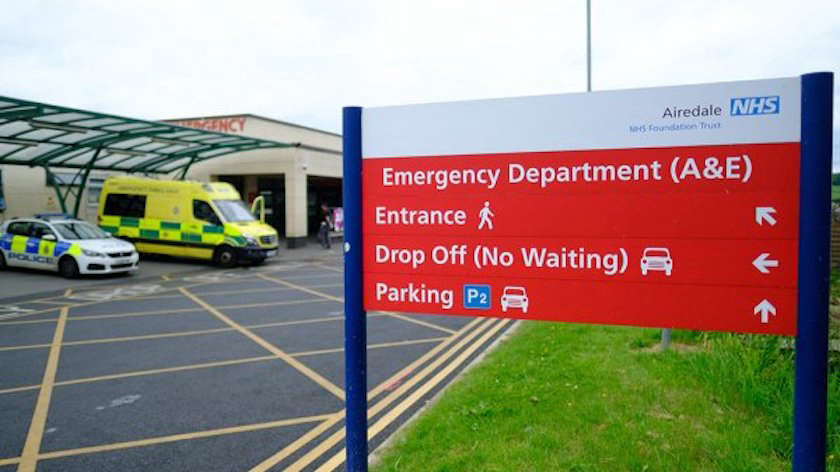 Airedale emergency department 'exceptionally busy' with flu cases rising
Airedale emergency department 'exceptionally busy' with flu cases rising
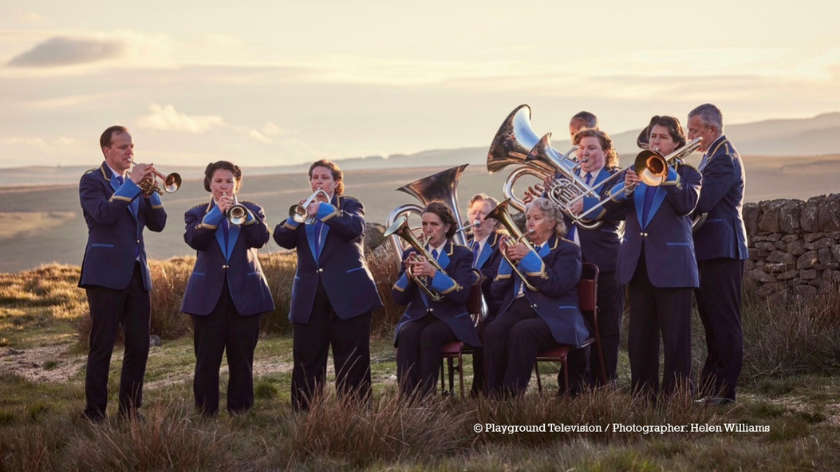 Skipton Brass Band Conductor shines on Channel 5’s All Creatures Great and Small
Skipton Brass Band Conductor shines on Channel 5’s All Creatures Great and Small
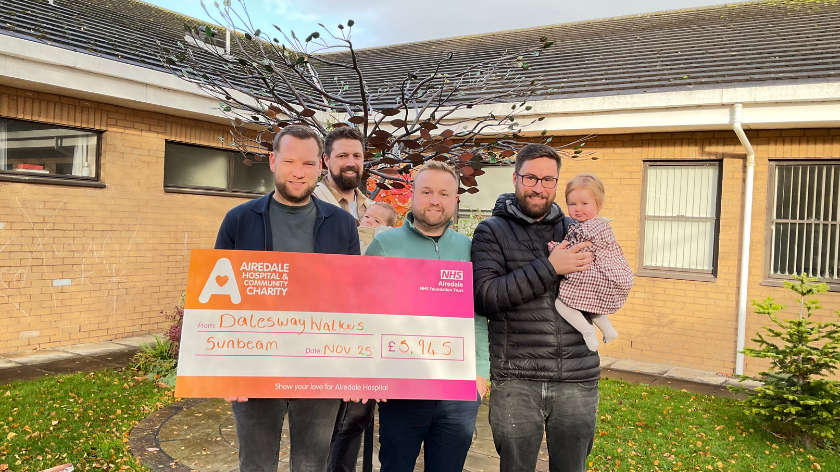 Local dads raise £11,892 to support Airedale Hospital and Community Charity
Local dads raise £11,892 to support Airedale Hospital and Community Charity
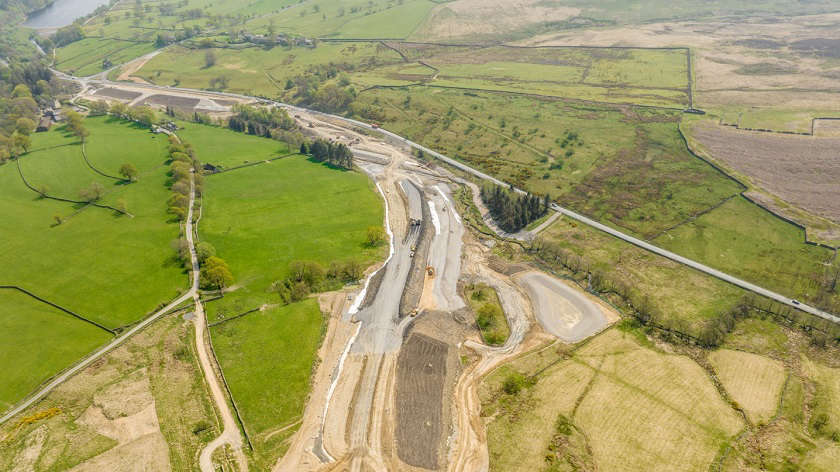 Don't blame wildlife for £11.7m Kex Gill overspend, say Green councillors
Don't blame wildlife for £11.7m Kex Gill overspend, say Green councillors
 New school observatory opens to inspire next generation of astronomers
New school observatory opens to inspire next generation of astronomers
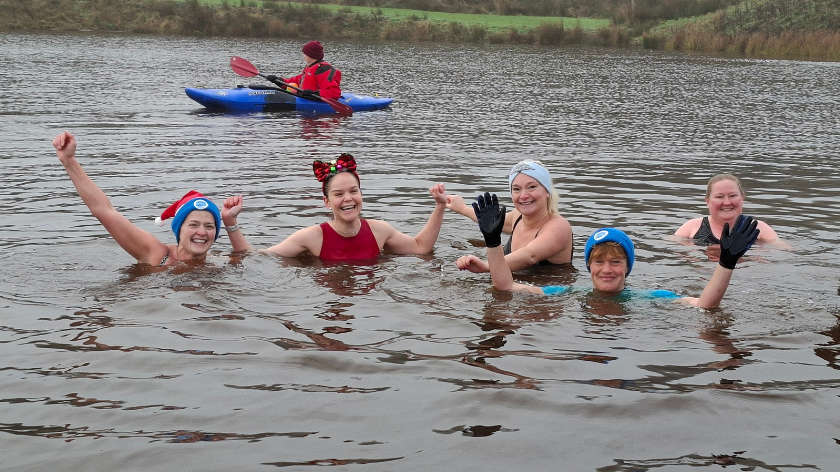 Brave dippers raise more than £5,000 at Sue Ryder’s first Big Dip Dales
Brave dippers raise more than £5,000 at Sue Ryder’s first Big Dip Dales
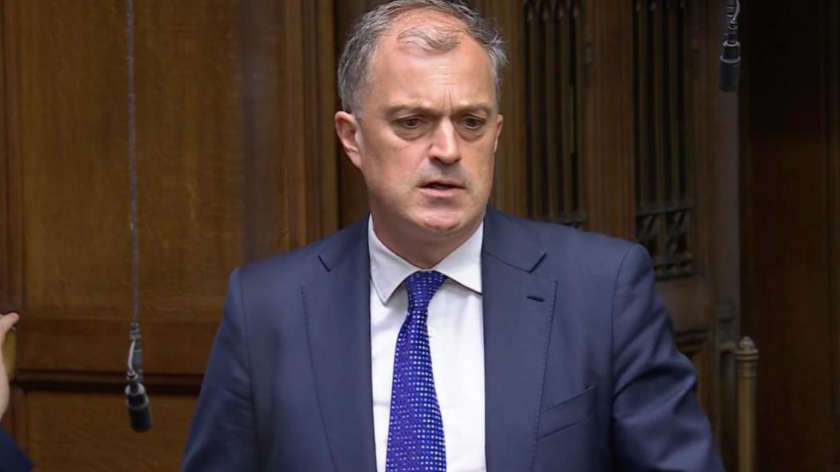 Tourism tax would be a 'hammer blow' for hospitality, says Skipton MP
Tourism tax would be a 'hammer blow' for hospitality, says Skipton MP
 New train timetables on Airedale Line from Sunday
New train timetables on Airedale Line from Sunday
 An evening with Inbetweeners comedian in Silsden
An evening with Inbetweeners comedian in Silsden
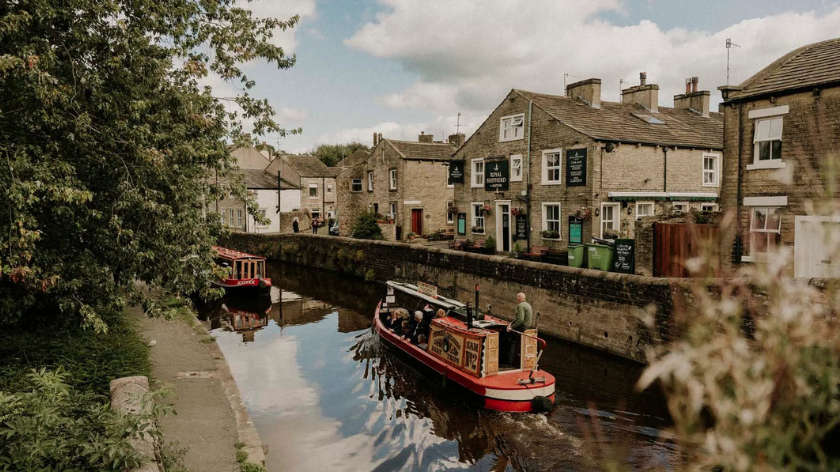 Skipton named happiest place to live in the UK
Skipton named happiest place to live in the UK
 Funding available to help rural community groups grow stronger and work smarter
Funding available to help rural community groups grow stronger and work smarter
 Come say hello to Santa in Skipton
Come say hello to Santa in Skipton
 Friends of the Dales Launches ‘Eyes on the Skies’ Campaign to Stop Raptor Persecution
Friends of the Dales Launches ‘Eyes on the Skies’ Campaign to Stop Raptor Persecution
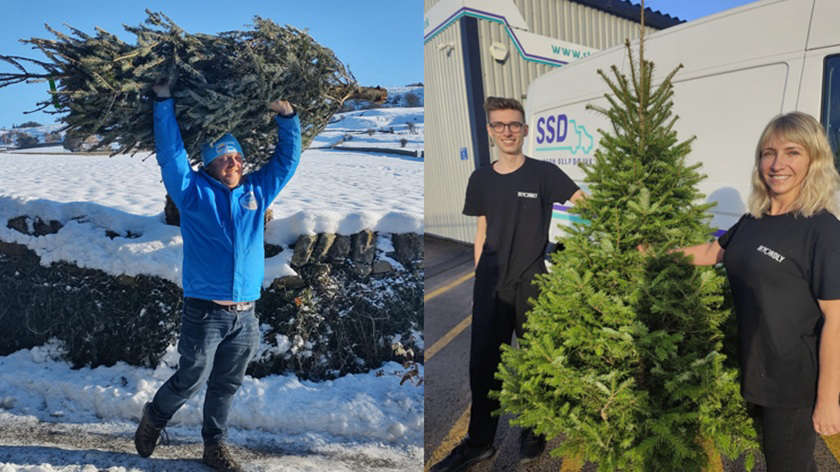 Sue Ryder's Christmas Treecycling scheme launched
Sue Ryder's Christmas Treecycling scheme launched
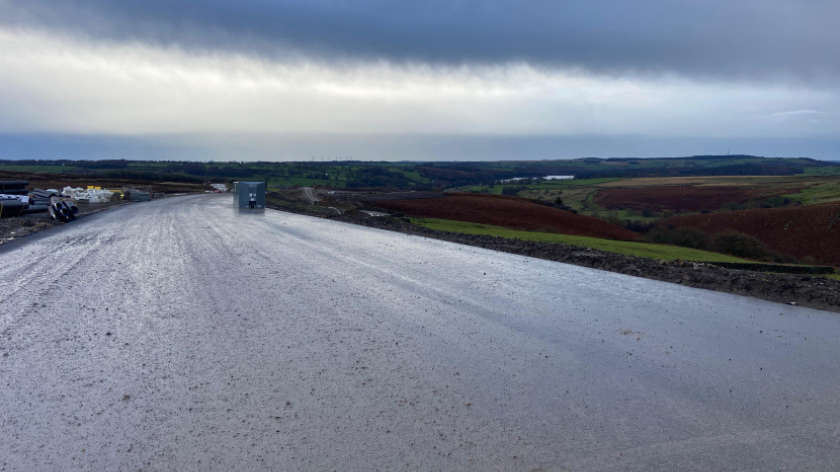 Skipton MP praises 'tremendous progress' of £82.5million Kex Gill project
Skipton MP praises 'tremendous progress' of £82.5million Kex Gill project
 Skipton to feature in new North Yorkshire Calendar
Skipton to feature in new North Yorkshire Calendar
 Ermysted's to adopt new Year 7 Admissions Test
Ermysted's to adopt new Year 7 Admissions Test
 Accounting firm in Silsden celebrates 7 years in business
Accounting firm in Silsden celebrates 7 years in business





